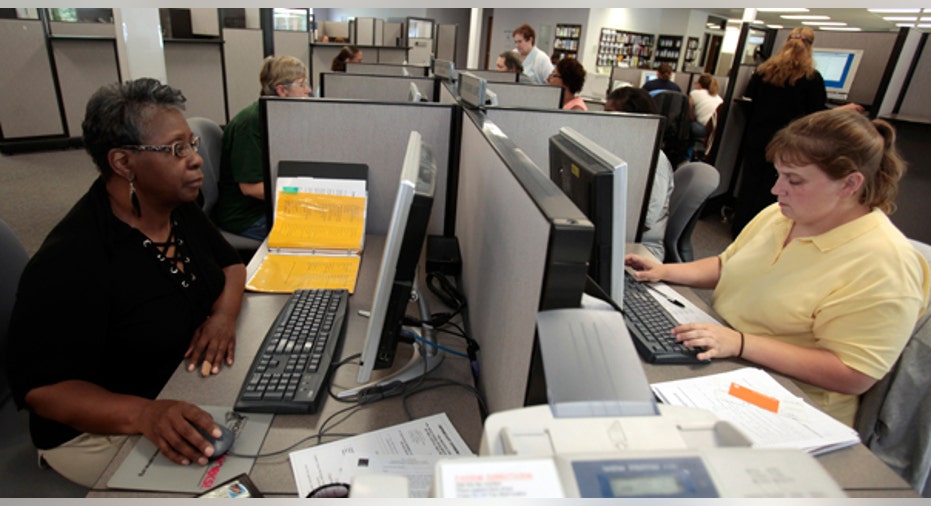Office Drama: Workers Grow More Competitive in Last Decade

Whether it's beating a team member to the punch on a big project or taking unfair jabs at office mates, workplace competitiveness has heated up over the last decade.
In a new survey by staffing firm OfficeTeam, 49% of senior managers say their employees have grown more competitive with one another in the last 10 years, and 8% describe workers as "significantly" more competitive.
"If I had to narrow it down to one word, it would be 'survival'," says Steven Raz, co-founder and managing partner at Cornerstone Search Group in Parsippany, N.J. "There's the general feeling out there that the economy is pretty bad, and companies are using it to their benefit to squeeze more out of their workers than ever before."
The layoffs and cutbacks experienced by most corporations over the past four years mean that there are very few "fat" organizations out there, Raz explains. Companies are operating with leaner budgets and smaller staffs, and employees are taking note that their team of 20 colleagues has dwindled down to five.
"If you're still employed, you're working harder than ever before, and if you can't do the work, then you'll be replaced. There are people lining up to get interviews these days, and you've got to fight harder to get recognized and document your accomplishments like you were your own PR person."
Employers’ new mentality is also to blame for the increased competitiveness, because they’re looking for workers who can do more with less. Today, managers are being hired based on their ability to increase productivity and efficiency, Raz says.
"If you're looking for a role as a supervisor, you're going to have to be a leader, a change agent, a person who can kick people into high gear. Companies know their people have less resources to work with these days, and they want people who can manage that. It's creating a very fast-paced environment where if you don't step up and do the work, someone is there right behind you who'd love to have your job," Raz says. Of course not every company is quite so cut-throat, he adds. Every company has a unique culture and some managers know their people don't thrive in high-pressure environments. "Every company has a unique approach and style, and some managers have found they'll get more out of their staff if they're more relaxed and accommodating. But some are going to go in telling you, 'You've got to work weekends, you need to be in by 6 AM and you'll be eating lunch at your desk.' It just depends," he says. Unfortunately, more competition means that things can get ugly in the workplace, warns Tom Thomson, managing partner at staffing consultancy Sanford Rose Associates in Franklin, Tenn. "The world has changed. Everything is more competitive now," he says. "We've seen people with some really bad behavior: taking credit for other people's work, cutting corners to make themselves look better or faster. It's hard to find team players these days."
Thomson says his company strives to place workers who know how to work as part of a larger team with clients, but it’s not always easy to identify team players. Only 25% of the candidates Thomson screens make the cut, he says.
"We see a lot of people who will always put themselves ahead of the team. You want a certain amount of competitiveness that will translate to a person wanting their team to succeed, but in many cases, they're only going to use that competitiveness internally and it will end up hurting everyone they work with."
Dennis Grady, executive recruiter and Career Consultant at Spire Search Partners in Hoboken, N.J., says that he has also seen an increased level of competitiveness in candidates because companies have changed what they look for in prospective employees.
"Ten years ago, we saw a lot of companies concerned with the pedigree-- what schools a person attended. If you went to Harvard or Cornell, you were pretty much a shoe-in, and you didn't have to work as hard as someone who came from a no-name school and had to work their way up from the back office to the front office," says Grady. "But now we're seeing that companies aren't as caught up on stamping out another person with an Ivy League degree. Now they're saying, 'We want someone who can get things done.' Going to certain schools doesn't mean you're an automatic hire anymore."
But no matter where you went to school, Grady says companies have a "very low tolerance" for workers who aren’t giving their all. Managers have been trained to see through people who are "just showing up and shaking hands," says Grady.
"No company is interested in filling seats or having warm bodies in a room. They want things to get accomplished and they're holding people to a higher standard. It's only natural that people would become more competitive in order to get ahead," he says.
Of course, if all this competitiveness was inspired by the bad economy, then once things improve, the level of competition should die down… right? "This isn't changing for the next five years at least," says Raz. "The immediate threat of job loss may mean the competitiveness will die down a little, but people are creatures of habit. They're going to keep working at the rate they've been working for the foreseeable future."



















